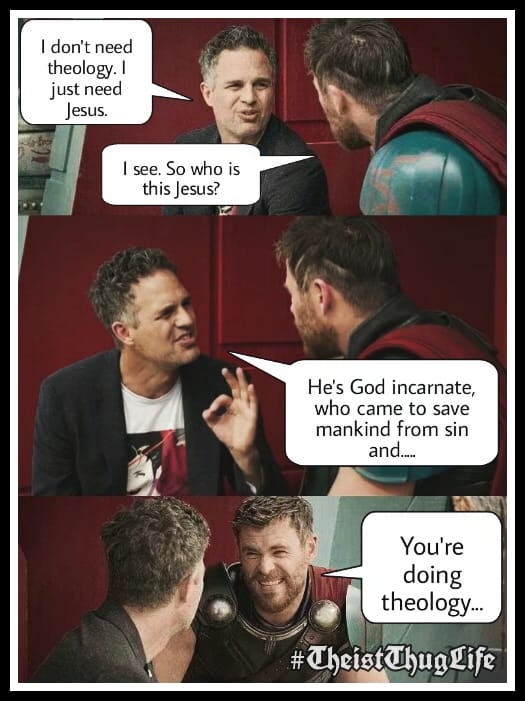When there’s nobody around to hear

So, another day, another meme. A few days ago, this came across my Facebook newsfeed:

So, how might one respond to a meme like this?
Is it accurate?
The first thing to ask is, does this meme accurately represent what Christians believe? After all, if someone’s religion is wrong, it shouldn’t need to be misrepresented to be shown to be false, right?
So, what do Christians believe about the Trinity? Well, we believe that there is only one God, but that within the Godhead that there are three persons: the Father, the Son and the Spirit. So, when the Son was praying, He wasn’t praying to “Himself”, but to the Father.
This meme already isn’t looking that promising…
I wasn’t there…
The meme appears to suggest that, unless you were present at an event, then you couldn’t possibly know what happened.
However, I’m sure there are many events you know much about, but for which you were not present. These events range from the great events in history to the story of how your parents met. The reader will know about these events because those who were there have either told them directly, or because they have read descriptions found in diaries and letters.
The same is true for the life of Jesus. St. Luke didn’t witness Jesus’ ministry, yet he can tell us what happened by reporting the testimony of those who were present at the time. Luke speaks about his sources in the opening of his Gospel:
Inasmuch as many have undertaken to compile a narrative of the things which have been accomplished among us, just as they were delivered to us by those who from the beginning were eyewitnesses and ministers of the word, it seemed good to me also, having followed all things closely for some time past, to write an orderly account for you… that you may know the truth concerning the things of which you have been informed.
Luke 1:1-4
No witnesses
Okay, so it’s possible for me to know about an even if I was not there to witness it… but what about the situations where, say, Jesus was alone and there was nobody to hear what He said and see what He did?
For example, all the Synoptic Gospels (Matthew 4:1-11, Mark 1:12-13, Luke 4:1-13) record Jesus going out into the desert alone for forty days. Despite Jesus doing this alone, Mark tells us that He was tempted by the devil, and Matthew and Luke go into detail about these temptations, even going so far as to narrate the exchanges between Jesus and Satan. How did they know what was said?
The answer to this is, I think, rather obvious. Many of my friends know how I felt when I watched the sunrise each morning as I was walking across Spain. They know this because I told them. Likewise, the events in the desert could easily have been passed onto the Apostles by Jesus Himself. Perhaps one night around the fire, after casting out an unclean spirit in a Synagogue earlier in the day, Jesus told them what had taken place during His time in the wilderness.








